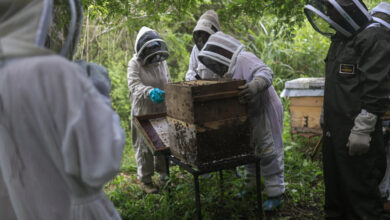Recommendations for Fully Vaccinated and Not Vaccinated Travelers
Although each country has its own entry and exit requirements, fully vaccinated people are more likely to travel without any inconvenience. Here are some guidelines you should consider while preparing for your trip.

The Woman Post | Carolina Rodríguez Monclou
Listen to this article
Before booking your airline tickets, it's essential to check your destination's COVID situation. If you are traveling to the United States, you are required to show a documentary of recovery of COVID-19 or a negative COVID-19 test result before boarding your flight. According to The Centers for Disease Control and Prevention (CDC), the timing of this test depends on your age and vaccination status.
One common rule among most countries is wearing a mask in indoor areas of public transportation, including inside the plane and the airport. On the other hand, fully vaccinated travelers are less likely to get and spread the virus. Meanwhile, those who are not fully vaccinated are at a higher risk and need to follow more recommendations during the travel.
If you are not fully vaccinated, airlines will require you to get tested with a viral test between one to three days before your trip.
What Are the Requirements To Consider a Person Fully Vaccinated?
You are considered fully vaccinated 14 days after:
-Getting an accepted single-dose vaccine.
-Getting an accepted second dose series.
-Getting an active (not placebo) COVID-19 vaccine in the US.
-Getting any "mix-and-match" combination of accepted COVID-19 vaccines (however, the CDC doesn't recommend this method).
If you don't meet these requirements, it's essential to check what your destination asks you to enter that country. An important note is that if you have a medical condition that weakens your immune system, you might not be protected from the virus, although you have been fully COVID-19 vaccinated. You may need to continue taking all precautions and report your health status to your airline to receive more information about the protection required for the trip.
Also read: HOW TO ACT TO PREVENT AND CONTROL ANXIETY
It's Not Recommended To Travel If…
-You have been exposed to COVID-19 and are not vaccinated or fully recovered.
-You are sick and present symptoms related to the virus.
-You tested positive and haven't ended your isolation period.
-You are still waiting for the results of a COVID-19 test.
Remember that if you do not follow your destination's requirements, you may be denied entry to the country. Make sure to follow all your airline requirements, including mask-wearing, testing, proof of vaccination, or quarantine.
Before boarding a flight, you are required to show proof of vaccination if you are fully vaccinated as well as a negative COVID-19 test result taken no more than three days before your flight. If you are not fully vaccinated, you will be asked to show a negative COVID-19 test result taken one day before the trip.
After Arrival
Travelers are highly exposed to COVID-19 even if they take all precautions. According to the CDC, you might not have symptoms, but you can still be infected. If that's the case, you are more likely to spread the virus to others even if you feel well. For this reason, it is recommended to get tested with a COVID-19 viral three days after your travel. Also, make sure to self-monitoring CORONAVIRUS symptoms. For not fully vaccinated travelers, the CDC suggests isolating themselves ten days after their travel and getting tested.
Although each country has different requirements and precautions, airlines are most likely to ask you to follow some of these guidelines for your trip.




